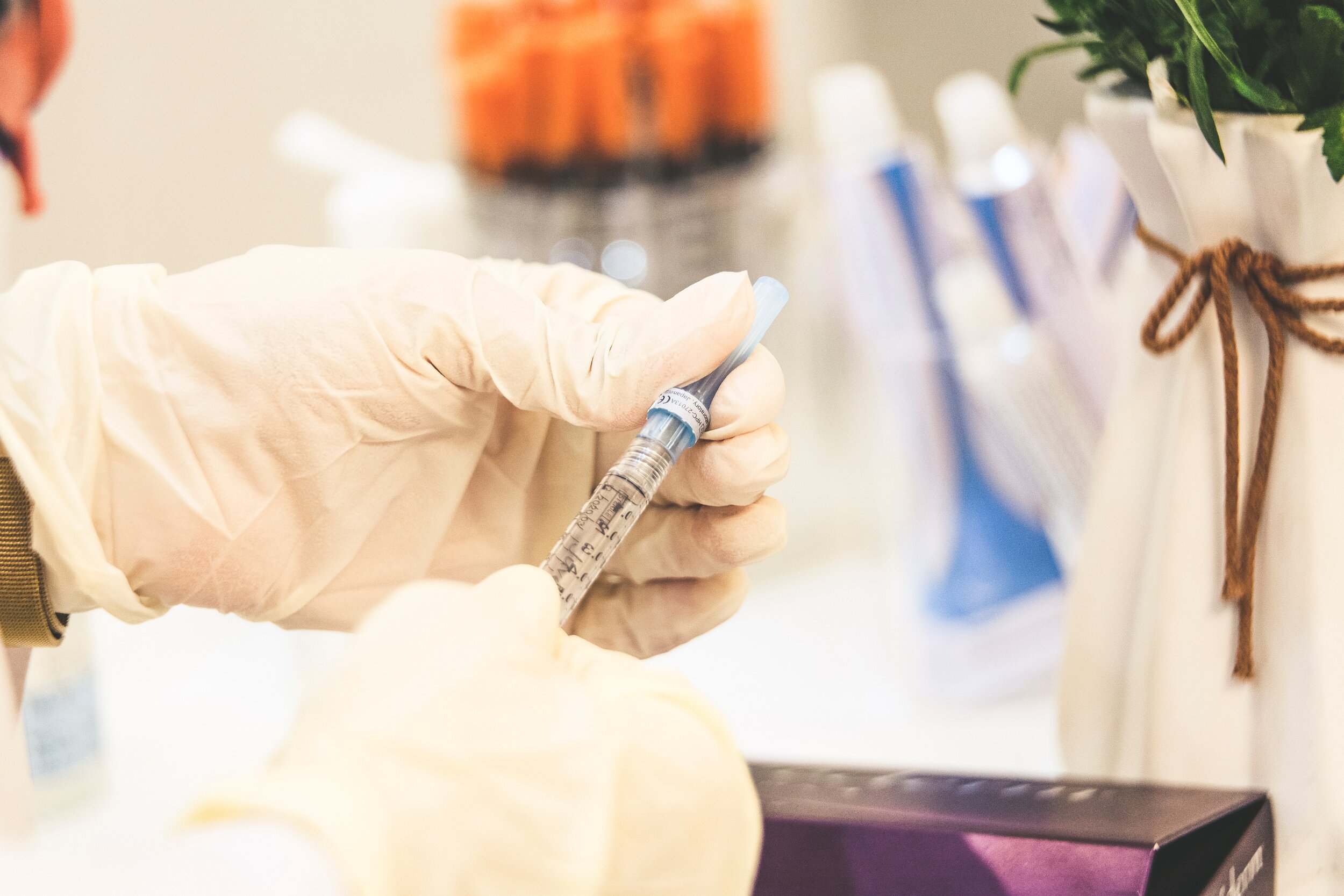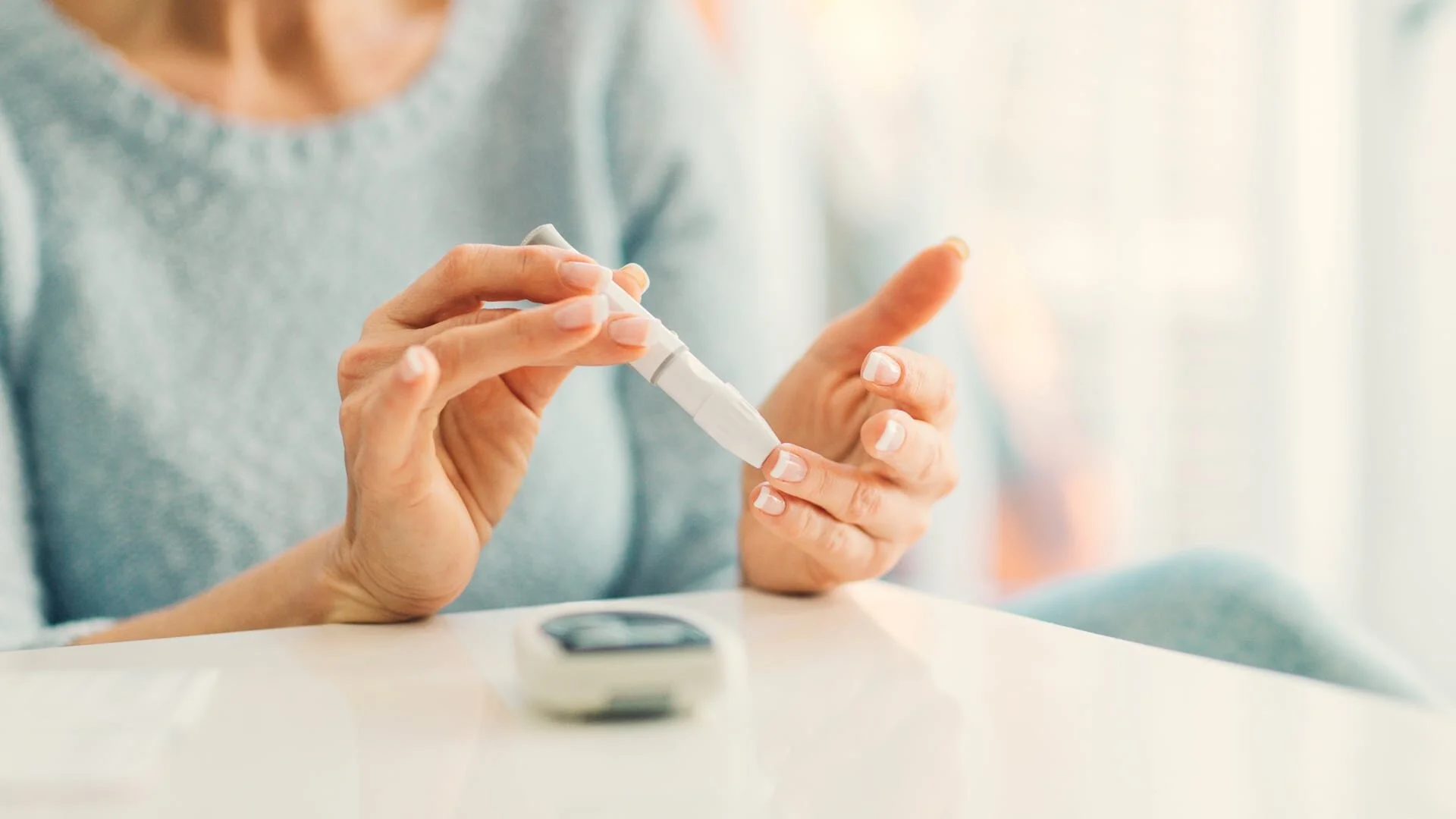Sliding Scale Insulin Alone Versus Scheduled Insulin Regimens
Learn how a diabetes management team, such as GlyCare, can help in the prevention of glucose abnormalities by using the consistent application of evidence-based, safe, conservative algorithms in combination with patient-centered care to formulate an appropriate care plan for each patient.
Understanding the Signs of Diabetes for Diabetes Awareness Month
November is Diabetes Awareness Month. Over 34 million people in the U.S. are afflicted with diabetes and 20% are not aware they have it. Likewise, over 88 million people in the U.S. have prediabetes and 84% are unaware. It is imperative to recognize the toll this disease has taken, and we must continue to work towards a healthier nation.
Celebrating Healthcare Quality Week
Healthcare Quality Week is a time to recognize the progress made by healthcare professionals towards the improvement of patient outcomes and to prepare for challenges that have yet to arise. This week I would like to recognize the GlyCare team for their unwavering dedication to high-quality diabetes care.
Telehealth for Chronic Disease Management
Telehealth services have become more widely accepted and utilized since the beginning of the COVID-19 pandemic. Laws and payor reimbursements have been modified to accommodate the nation’s need for telehealth services. The Community Preventative Services Task Force (CPSTF) recommends telehealth interventions for chronic disease management. Telehealth interventions have been found to improve several aspects of chronic disease management, including medication adherence, clinical outcomes, and dietary outcomes.
Why People with Diabetes Are at Increased Risk for Fractures
People with diabetes have a much higher risk for fracture. Skeletal deterioration is a complication of diabetes that is under-appreciated. People with diabetes have subtle differences in the microscopic architecture of the cortical bone, an increase in the volume of pores, which can weaken the bone increasing the chance for fracture. These microscopic changes are not picked up on the typical bone density tests; therefore, clinicians and patients need to be aware of the increased risk for fractures in patients with diabetes.
The 5 Most Common Myths About Diabetes
There are many commonly believed myths about diabetes in our community, leading to increased risk of misdiagnosis or stigma. To offer some clarity, we’ve tackled five of the most common myths about diabetes here.
Exercise as Part of Diabetes Self-Management
Regular physical activity is an important aspect of managing diabetes, dealing with prediabetes, or otherwise just staying healthy. Activity causes cells to become more sensitive to insulin, allowing insulin to work more effectively. With regular physical activity, you will find yourself feeling better. Experts recommend 150 minutes per week of moderately intense physical activity like fast walking or bicycling. People with diabetes may need to check their blood sugar before, during, and after exercise to ensure it remains stable.
The Impact of Smoking on Diabetes
Chances of developing type 2 diabetes are much higher for smokers compared to nonsmokers. The number of cigarettes smoked per day directly correlates to the risk of developing diabetes. The more cigarettes you smoke, the higher your chances. Not only does smoking increase your chances of developing the disease, it can wreak havoc for those who already have type 2 diabetes. It causes trouble with insulin dosing and overall management of the disease. Regardless of what type of diabetes you have, smoking makes diabetes more difficult to control.
Mood Changes and Diabetes
Mood changes are a common experience in people with diabetes. These mood changes can be accredited to various factors including rapid changes in blood sugars, the stresses of managing a chronic illness every day, or depression. It’s important to understand how to support positive mental health, as well as how to recognize signs of depression in order to seek help if needed.
The Connection Between Sleep Deprivation and Diabetes
Sleep deprivation is a significant risk factor for type 2 diabetes, yet it is often overlooked. We typically focus on things such as family history, eating habits, and weight, but both quantity and quality of sleep are also factors in the development of type 2 diabetes. Furthermore, people with diabetes are more likely to have a sleep disorder causing sleep deprivation. Lack of sleep in relation to diabetes is a vicious cycle of one causing the other.
Why Vaccinations Are Vital for People With Diabetes
While we are anxiously awaiting the release of a COVID-19 vaccine, it is important to make sure you are up to date with all other necessary vaccinations. People with diabetes are at a greater risk of complications from certain vaccine-preventable diseases, just like with COVID-19. Thousands of adults get sick each year from diseases that could have been prevented by a vaccine. Get vaccinated to stay healthy – especially if you have diabetes.
Understanding Prediabetes and Associated Risk
88 million people or 34.5% of the U.S. population has prediabetes. That is a staggering number; however, 80% do not even know they have prediabetes as it often does not produce any symptoms. Prediabetes is diagnosed when blood sugar levels are higher than they should be but not high enough to diagnose diabetes. Prediabetes comes along with an increased risk of developing type 2 diabetes, heart disease, and stroke. Without taking appropriate action, prediabetes can develop into type 2 diabetes within five years.
Corticosteroids for COVID-19 & Hyperglycemia
Dexamethasone, a corticosteroid, has become common for the treatment of COVID-19. Corticosteroids can cause hyperglycemia in patients with and without diabetes. Corticosteroid-induced hyperglycemia can be challenging but necessary to treat for the body to heal properly and to prevent further complications. A glycemic management team like GlyCare can help control blood glucose levels for these patients.
How Diabetes Can Affect Hearing Loss
Hearing loss is twice as common in people with diabetes and 30% more prevalent in people with prediabetes. In the United States, over 34 million people have diabetes, approximately 88 million have prediabetes, and over 48 million people have hearing loss. Although the exact relationship between diabetes and hearing loss has not been identified, proper blood glucose management helps conserve many of the body’s functions and hearing is included.
Why The LGBTQ+ Community Is at Greater Risk for Type 2 Diabetes
Research suggests some subgroups of the LGBTQ+ community have a higher rate of developing type 2 diabetes. African Americans, Mexican Americans, American Indians, Native Hawaiians, Pacific Islanders, and Asian Americans, as well as people who have relatives with diabetes, are already at greater risk for type 2 diabetes. Add sexual minority to any one of those and the risk is compounded.
Understanding the 2020 DSMES Consensus Report
Diabetes education is a key component of the successful management of diabetes. The diabetes self-management education and support (DSMES) Consensus Report was just released and includes key information for healthcare providers in addressing needs for type 2 diabetes education. The report addresses potential solutions to access and utilization barriers, as well as discussing methods of improving health, clinical care, and education services and reducing diabetes-associated per capita health care costs.
An Innovative Method for Hospital Cost Savings While Elective Surgeries Are Down
Elective surgeries have been and in certain cases still are postponed due to COVID-19. Elective procedures bring in anywhere from 40-60% of a hospital’s overall revenue. An estimated loss of $202.6 billion for hospitals between March 1, 2020 to June 30, 2020 was reported by the American Hospital Association. One of the largest health systems, Johns Hopkins University, was originally projected to bring in $72 million but is now expecting to lose $100 million. With hospitals in a cash crunch, it is imperative to manage costs in other areas.
340 Organizations Send Letter to Congress Urging Action on Telehealth
On June 29, 2020, 340 organizations signed a letter urging Congressional leaders to make telehealth flexibilities created during the COVID-19 pandemic permanent. Those signing this multi-stakeholder letter include national and regional organizations representing a full range of health care stakeholders and all 50 states, the District of Columbia, and Puerto Rico.
The Impact of Telehealth on Diabetes Care
Worldwide, diabetes affects over 463 million adults, with 79% living in low- to middle-income countries. In the U.S. alone, over 34 million people of all ages are afflicted, and the prevalence is 17% higher in rural areas than in urban areas. Telehealth could be the answer to reaching many of these patients who otherwise do not receive proper care in the management of their diabetes.
Why Proper Foot Care is Crucial for People with Diabetes
Diabetes raises the glucose levels in the blood which can damage the nerves in the feet and legs causing diabetic peripheral neuropathy. With diabetic peripheral neuropathy, patients can lose feeling in their legs and feet, becoming unaware of any cuts, scrapes, or wounds that may occur. In conjunction with poor circulation, which can slow the healing of any wounds, small cuts can quickly become serious infections. Therefore, it is vitally important that people with diabetes take extra care of their feet and maintain foot health.




















